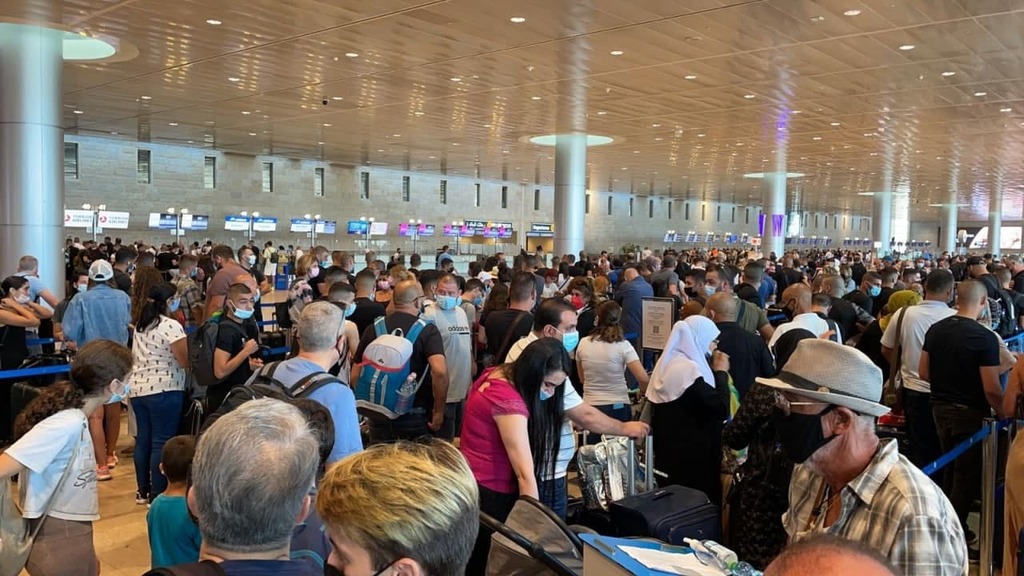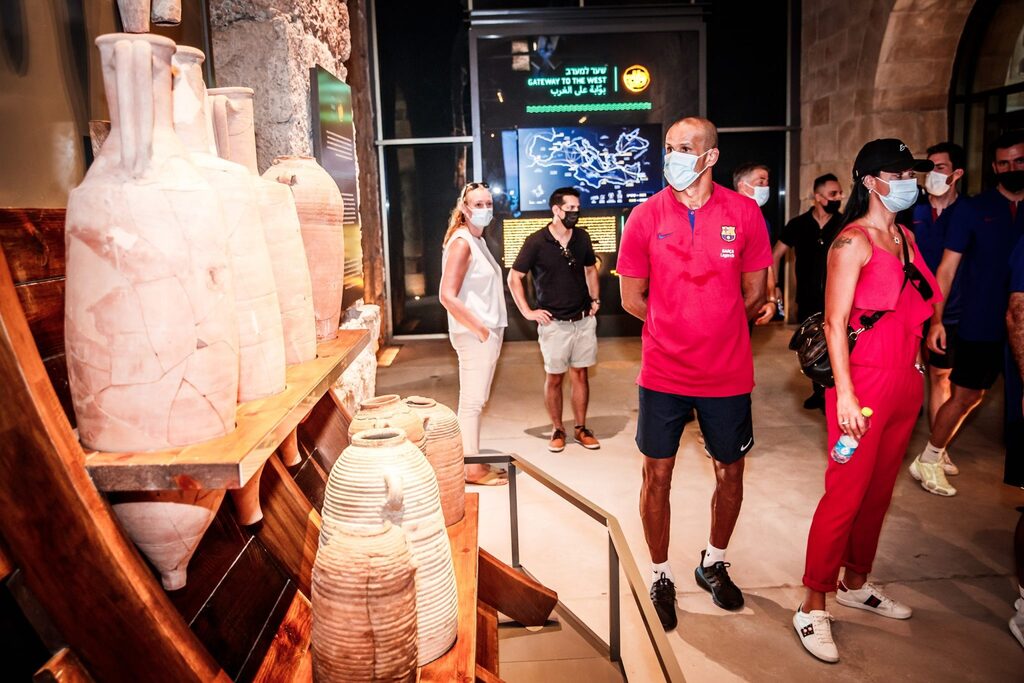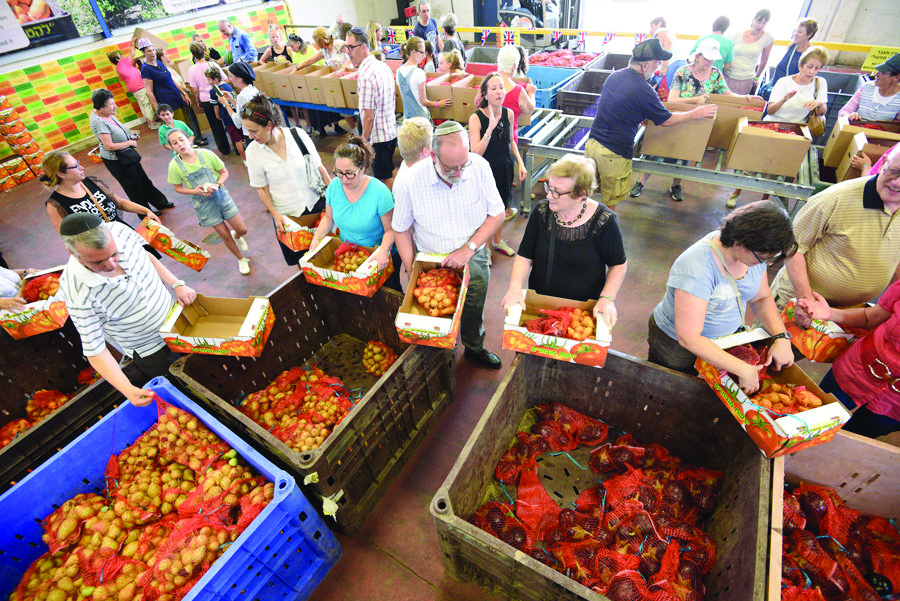Getting your Trinity Audio player ready...
The Israeli government is on a collision course to incapacitate the country’s tourism industry and drastically down-size its tourist infrastructure (hotels, companies and travel professionals). The record income of NIS22 billion recorded from incoming tourism alone in 2019 has been almost entirely decimated, with no solution for a recovery in sight.
A short and successful trial in July that let tourists into Israel in groups (a total of 50,000 tourists in educational, heritage and pilgrimage groups) was cut short recently after the government imposed a complete shut-down on tourist travel to Israel.
3 View gallery


Israeli travelers crowded together at Ben-Gurion Airport, July 2021
(Photo: Kobi Kuankas)
There was no real reason for this, as the group tourism experiment was a great success. Incoming tourists had to take two PCR tests and an antigen test, resulting in only healthy tourists being let in. This proves that the health protocol protects the Israeli population and could enable the tourist industry to commence its recovery.
Ben-Gurion Airport is often described as the "weak spot" where the COVID-19 virus and its variants found a way into the country enhancing the contagion factor. This is probably true, but the virus is let into Israel by Israelis (500,000 in July 2021) and not by foreign tourists who were subject to proper health and safety protocols.
The right way to deal with this weak spot is to improve the process vis-à-vis Israelis and allow tourists into the country using the health protocol that was implemented in July.
Israel is a travel destination that competes against many other destinations that these days are more permissive and let tourists in usually just with a negative PCR test.
If the government is not going to let tourists in soon it will take years and massive investment for the industry to return to its 2019 record of 4.5 million tourists, that generated huge revenues for the Israeli economy.
Europeans seeking sustainable travel
I hope tourists will enter Israel soon but it is clear that the travel industry has been completely changed by the Covid-19 virus which has created new travel preferences. The Israeli travel industry will have to make adjustments in order to be attractive and to compete against the leading destinations.
3 View gallery


The Tourism Ministry hosts a tour of ancient Caesarea for a group from Barcelona football club, July 19, 2021
(Photo: Oded Karni)
A European study that collected data between August 2020 and February 2021 shows the new preferences of the European traveler. The study focused its findings on sustainable travel, seasonal and destination preferences and travel frequency.
Here are the key findings:
1. Reducing travel’s carbon footprint: The pandemic at times brought the world to almost a complete halt giving nature a chance to gain a renewed foothold. Less pollution, less traffic should be our responsibility and commitment to the planet and nature. Travel contributes to Co2 emissions mainly due to transportation, followed by accommodations.
According to the survey - 37% of European travelers will pay more in order to minimize their carbon footprint. This is a considerable number. It is a good time for the Israel hospitality industry to take measures and look into getting the hotels accredited with GSTC, Green Globe, Global Key and other organizations that help measure Co2 emissions and improve standards.
Israel can offer travelers a nice choice of campgrounds (click here for options provided by the Israel Nature and Parks Authority). Another good option is eco-lodging at Carmey Avdat and Kibbutz Lotan. Another great way to travel in Israel and leave a small carbon footprint is to use the Israel Railways network, which is cheap and efficient.
2. Supporting local communities: Travel has undergone a huge change in recent years. A big move from sight-seeing to meaningful encounters with communities. Travelers want an authentic meeting with people hearing about their experience first hand. Not only that, travelers look to contribute to communities. It is interesting to see that in the European study that 44% of travelers are looking to pay more in order to help communities.
Israel has a lot to offer to travelers in this respect: An example of meaningful personal experiences is Leket, which helps support people in need with food and where you can volunteer picking produce from agricultural fields or help out in the logistical center. Another example is aiding refugee children with Elifelet.
3. Low season and longer trips: More than half of those surveyed said they would travel in the off season and for longer periods. This is a huge change in comparison to the trend before the pandemic when Europeans traveled more times for shorter trips. Tour operators should create a new messaging to answer the new travel demand.
This should include that Israel is safe (health-wise) and a place where you can learn about the past (the religious and historical heritage of the Holy Land), meet the people and communities of the present, and also contribute to the future through meaningful encounters with people and communities, leaving a positive footprint through travel.
Uri Sharon is a tourism professional with a Master's degree in Tourism Development and Planning from Haifa University. He is the founder and editor of trvltrend.com and has many years of experience in digital and offline marketing, e-commerce and integrative media planning. The main focus of his writing is trends in travel and hospitality.


